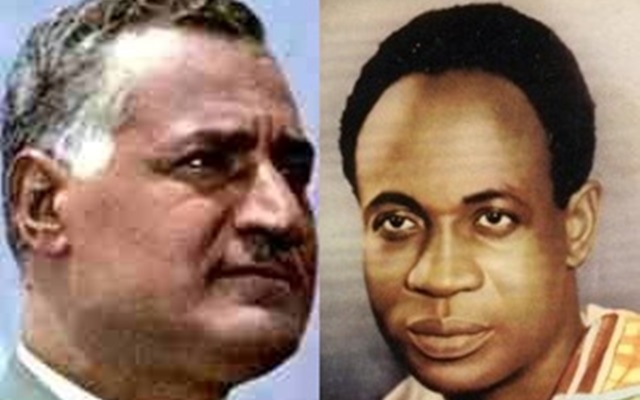Africa’s Third Liberation is underway
Africans, the general masses, the youth, intelligentsia, opposition politicians, religious leaders, students, and trade unionists have finally woken up from the yoke of oppression, the previously untouchable regimes that have ruled them since those days of political independence from Europe.
Without any hesitation, this is Africa’s Third Liberation being spoken in the revolutionary languages that have swept North Africa over the last few months. Historically, we all know of the first wave of a pan-African revolutionary call for the end of colonialism championed by Kwame Nkrumah of Ghana, Gamal Abdel Nasser of Egypt, Julius Nyerere in Tanzania and Jomo Kenyatta who led a similar movement in Kenya.
This short honeymoon period was then followed by a new post-independence dispensation, which was in some cases, similar or even worse than the colonial experience. There followed an outright personalisation of political and economic power by the independence leaders of Africa.
For example, Jomo Kenyatta president of Kenya between 1964 and 1978 grabbed large parcels of public or Trust land that to date lingers around as a past misdeed that if not corrected, will ignite a real conflict of resource competition between the rich and the landless poor. This illegal occupation of land became a template for most African independence elites, therefore provoking sentiments that have been simmering in the past half century.
In other African countries, Libya included, millions of US dollars have been misappropriated and siphoned out to European and other safe destinations. When the dictators are busy ruining the affairs of State, their sons and daughters are siphoning off literally billions of country revenues, a cycle that has many examples to attest this.
The maverick father and son, Muammar Gadaffi and Saif, are reported to be worth billions of dollars. The former president of Nigeria, General Sani Abacha stashed away through corporate entities and family businesses, more millions. In 2005, the Swiss authorities recovered and returned to the West African country at least $290 million which was believed to be part of the Abachas’ theft of Nigeria’s oil revenues. These are the narratives that bedevil Africa’s liberation story.
In between these scandals Africa witnessed a somewhat velvet revolution that was played simultaneously or in some cases soon after the fall of the Berlin Wall. The exit of the cold war catalysed Africa’s Second Liberation. It was a call for political reforms and removal of monopoly of power which many African presidents enjoyed absolutely. Most of these leaders ruled with the guarantee that their one-party states would be an eternal affair.
In Kenya it was against the law to dream, imagine or speak of the death of the president. All these oppressive systems were potent from one border to the other, all around the African continent. But when the Second Liberation came, however gradual it was, even so-called benevolent dictators like Kenneth Kaunda of Zambia fell from power after the ideological changes of the socialist East and capitalist West, ended their decades of old confrontations in 1989.
Meanwhile, while the presidency offered almost monarchical power and authority to the extent that Kaunda during the peak of his presidency was a patron of some 40,000 institutions and organisations in his country, it did not seem to have an impractical name like the one flaunted by the beleaguered Libyan Gaddafi.
He stubbornly calls himself Brother Leader and claims that the demands for his resignation are contradictory to the ‘Libyan socialist revolution’ which apparently in essence does not have an executive president. Definitions aside, a new change is underway in Africa, it is the Third call for Liberation, it is swift, potent, results-oriented and driven by literally all generations in society.
The rejection of Muammar Gaddafi by the larger population of Libyans is a good sign that decreed leadership is finally going to be a thing of the past in Africa. When he made his first public speech in reaction to public discontent to his 40 year rule, Gaddafi tactlessly responded with his standard dismissive remarks.
The Libyan leader condemned those who were calling for his resignation by stating with maverick incoherence that he was not and has never been the president of Libya. In fact, by making those pronouncements, Gaddafi has rewritten history. It is a revelation that would put any responsible journalist into a confused trance, that here we are after 40 years; this man was actually not the president of Libya.
There is a sense that hard-headed dictators always console themselves with the assumption that their people, the citizens are deeply loyal to them and support their leadership with enthusiastic love. When dictators the world over use this poetic language, it is for them an admission that without their so-called people, they are nothing. It also shows that they can go as far as possible – when they are under attack, their people will be human shields. This is what might happen in Libya shortly as the Allied Forces assert their aggression in the direction of Libya.
In Egypt, we saw minors raising flags calling for freedom and in Libya, pro-Gaddafi crowds have equally used children to propagate their claim. But in these days of the Third Liberation, it is really not the means to the end but the end in itself that will truly galvanize change in the rest of Africa. There will be an unstoppable hunger for change from South to North, as has been seen in Swaziland in the recent demonstrations against the government’s freeze of public wages and the downward spiral of the economy.
In South Africa there have been many protests by the trade union movement. Sudan, Ivory Coast and many other African countries are only beginning to experience this domino which was first dismissed in Tunisia as a non-starter. Africans will now not rely on the West anymore to solve its problems – the mobilisers of Cairo and Tunis have started something that will be very hard to stop, the Third Liberation.

